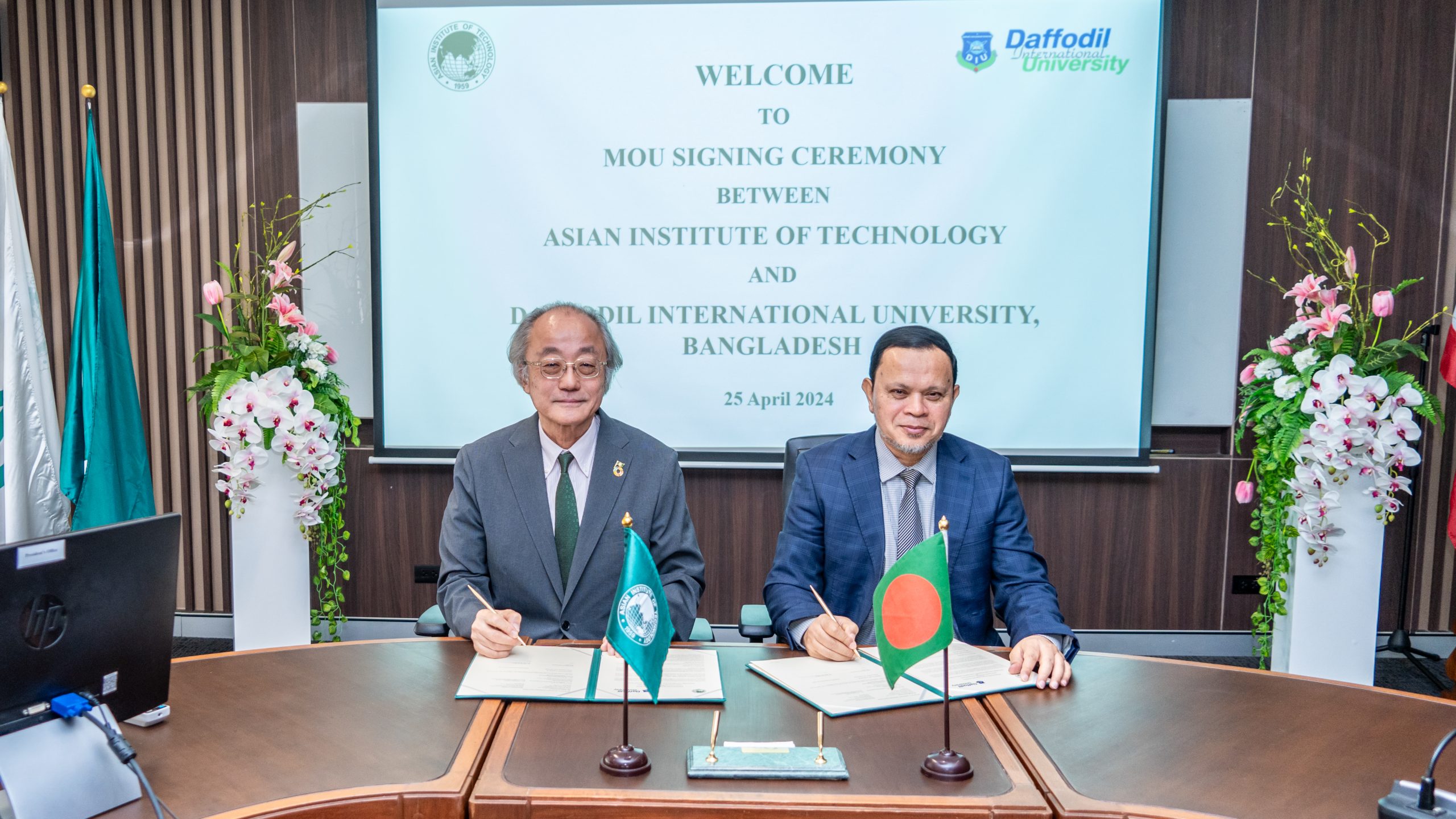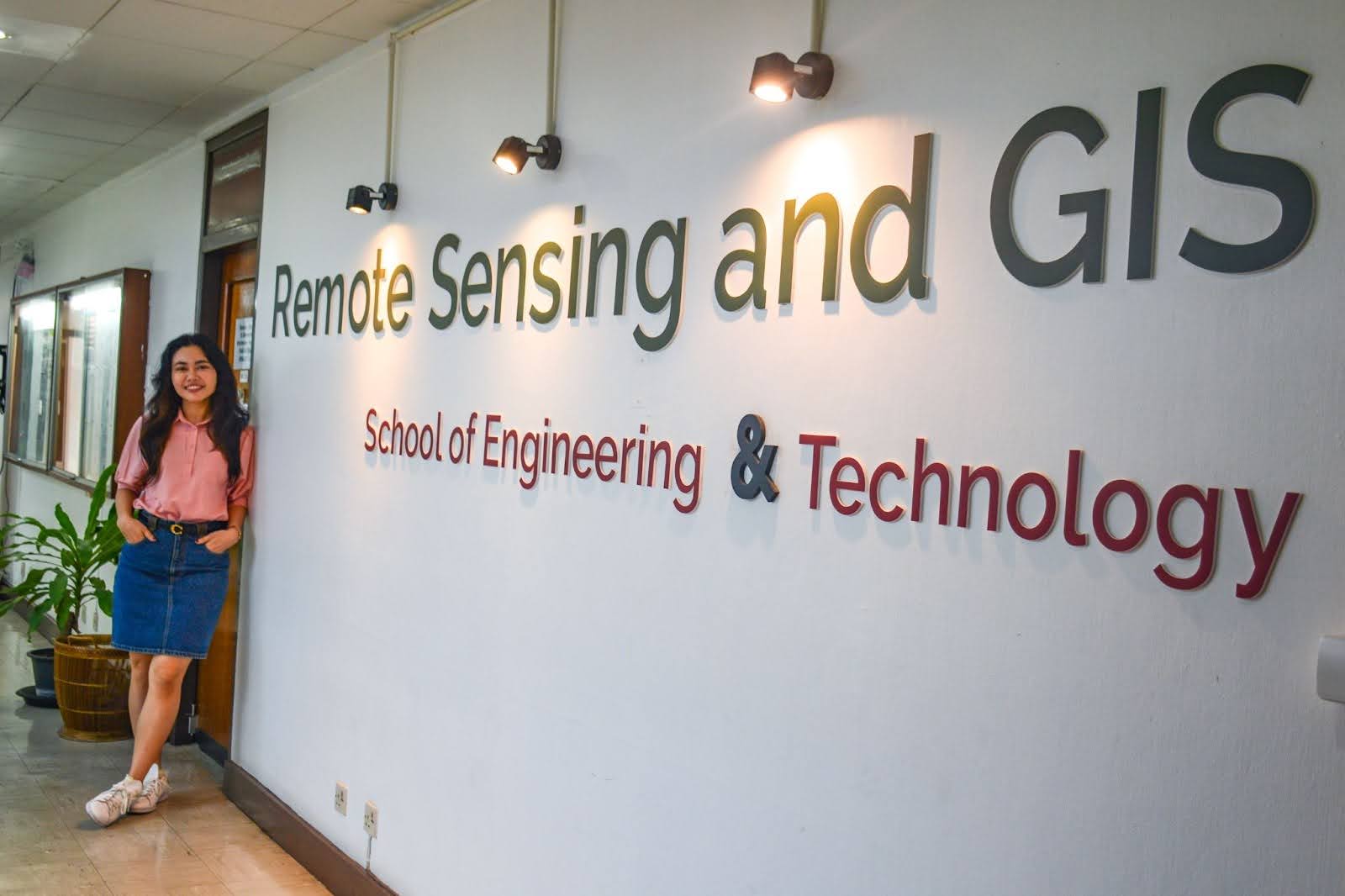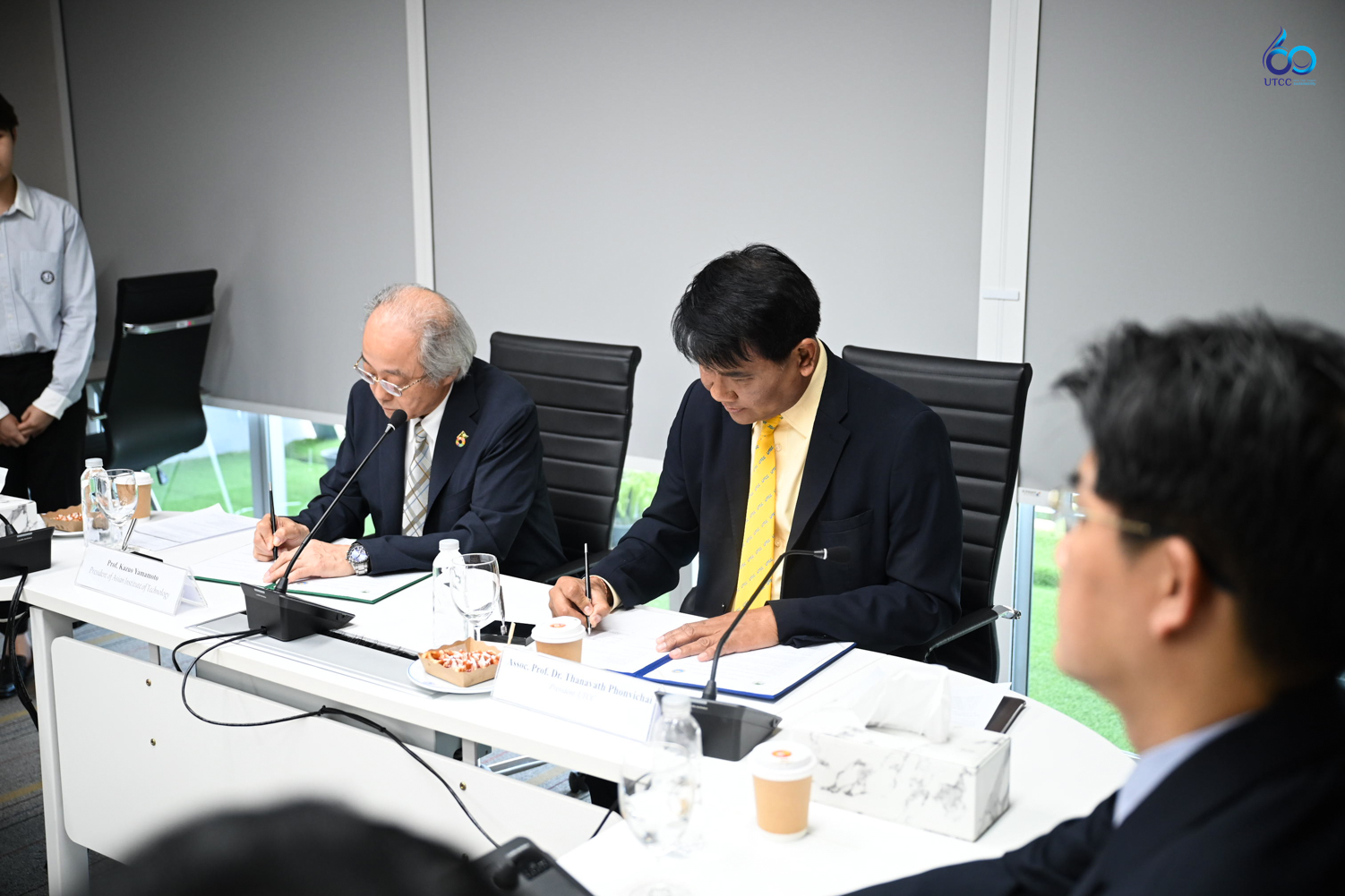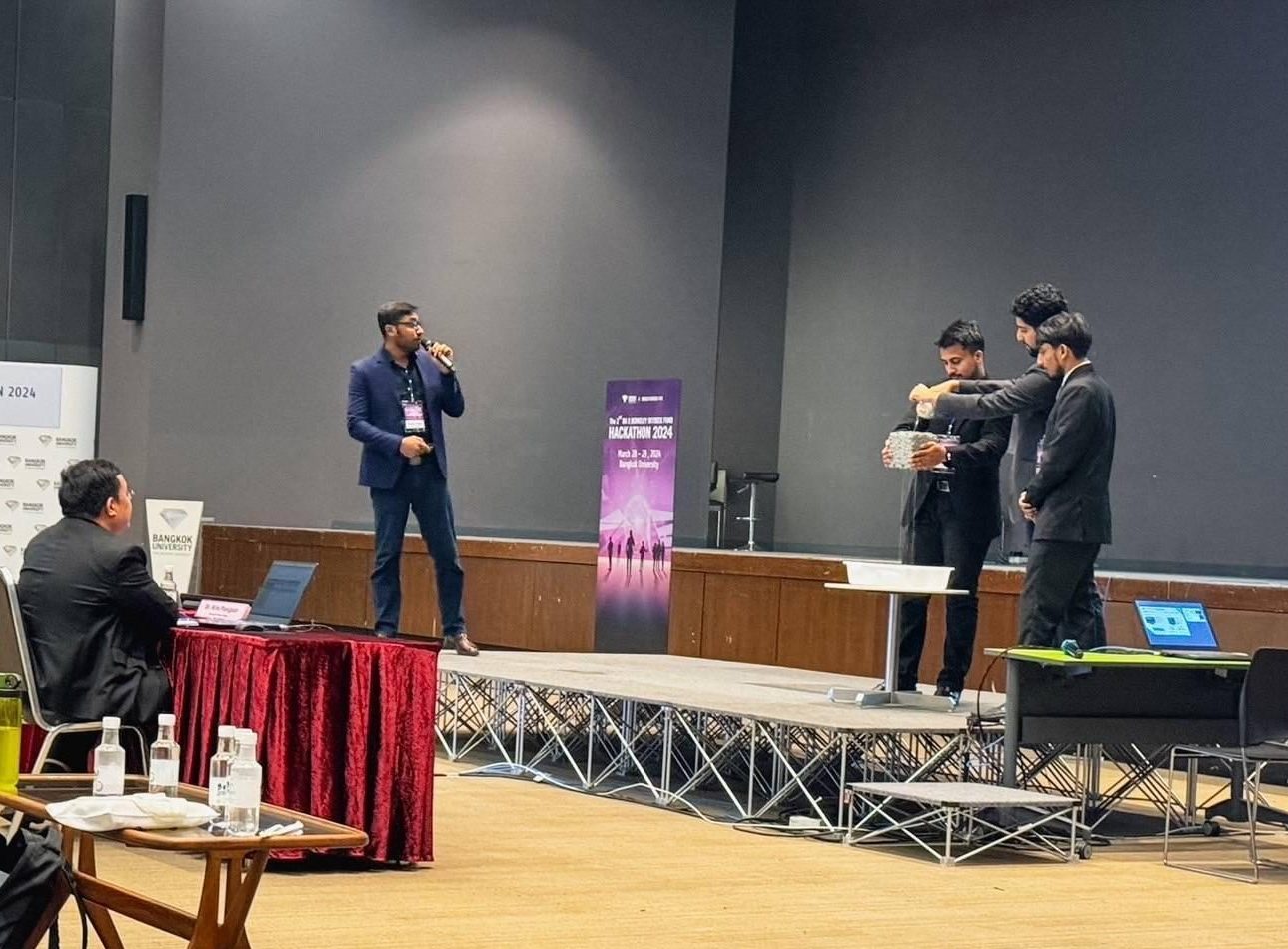By Alistina Shrestha
5 April 2024: The Asian Institute of Technology’s School of Engineering and Technology (SET) and the Office of Civil Defense (OCD) of the Republic of the Philippines convened on Friday, April 5, 2024. The meeting, held at the SET Meeting Room, aimed to explore avenues for collaboration in academic programs and capacity-building initiatives.

Figure 1: Representatives of SET with Mr. Eugenio A. Gepte Jr. from the Office of Civil Defense, Republic of the Philippines
At the forefront of the discussion were representatives from both institutions; Mr. Eugenio A. Gepte Jr., the Director of OCD’s Civil Defense Training Institute (CDTI), Dr. Sarawut Ninsawat, Head of the Department of Information and Communication Technologies, Ms. Amelia Canullas, Executive Assistant to the Dean, Ms. Alistina Shrestha, Manager – Marketing, Recruitment and Digital Strategies representing AIT SET, and Ms. Indra Kumari, Senior Program Officer representing the Office of International Affairs. The meeting provided a platform to exchange insights and discuss potential joint endeavors to address the pressing challenges posed by natural and human-induced disasters.
During the session, AIT SET showcased its comprehensive suite of programs including flexible master’s and doctoral offerings. Conversely, OCD, through Mr. Gepte Jr., shed light on the pivotal role of CDTI in equipping local disaster management professionals in the Philippines with enhanced skills and knowledge.

Figure 2: Mr. Eugenio A. Gepte Jr., Director of the Civil Defense Training Institute (CDTI), Office of Civil Defense, Philippines, giving an overview of the CDTI
Of particular note were discussions surrounding benchmarking and best practices. OCD revealed its ongoing efforts to benchmark with international counterparts, including recent visits to institutions within and outside of the Philippines. A key highlight of the potential partnership with AIT involves facilitating student research in areas such as Remote Sensing and Geographical Information Systems (RS-GIS), Water Engineering and Management (WEM), and Disaster Preparedness, Mitigation and Management (DPMM) Programs. Customized training and seminars emerged as another focal point of discussion. Both parties expressed keen interest in developing tailored courses and micro-training sessions to address specific needs in disaster risk management. OCD also signaled its readiness to provide subject matter experts for specialized fields such as human-induced disasters and civil-military activities. The meeting also explored avenues for student exchange programs and internships, with OCD expressing a desire to engage with AIT to provide practical exposure to disaster management scenarios in the Philippines.
Looking ahead, potential research collaborations were discussed, with OCD highlighting its ongoing partnership with the Philippine Institute of Volcanology and Seismology (PHIVOLCS) in lava flow modeling. Additionally, both parties expressed interest in collaborating on innovative technologies and techniques for disaster risk mapping.

Figure 3: Dr. Sarawut Ninsawat giving token of appreciation to Mr. Eugenio A. Gepte
The conclusion of the meeting marked a shared commitment from AIT SET and OCD to further explore collaborative opportunities aimed at fortifying disaster preparedness and response capabilities in the Philippines. Through education, training, and research initiatives, the partnership endeavors to foster resilience and mitigate the impact of disasters on communities across the nation.
The Office of Civil Defense (OCD) is an organization within the Philippines’ Department of National Defense (DND) and serves as the implementing arm of the National Disaster Risk Reduction and Management Council (NDRRMC). As such, it has the primary mission of administering a comprehensive national civil defense and disaster risk reduction and management program by providing leadership in the continuous development of strategic and systematic approaches as well as measures to reduce the vulnerabilities and risks to hazards and manage the consequences of disasters







